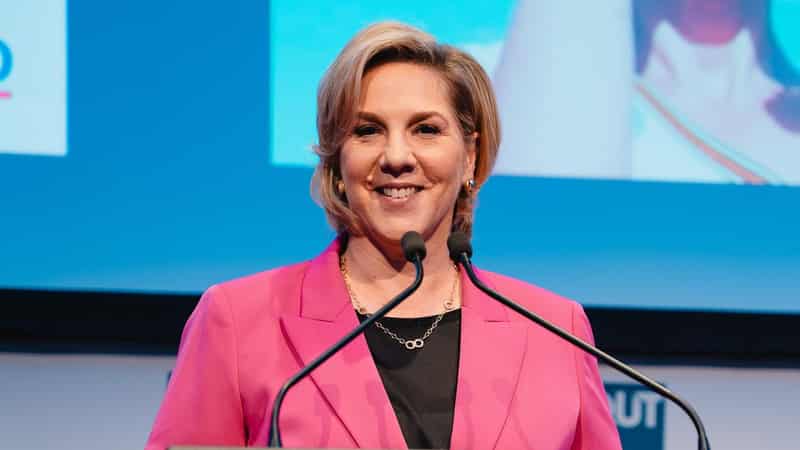
One of Tesla's top executives has urged Australian industry and governments to switch lanes on the economy.
Tesla chair Robyn Denholm warned the country could not afford to rely on its natural resources "forever", while speaking at a business forum in Brisbane on Wednesday.
The Sydney-born executive's comments come days before the electric vehicle giant is due to reveal its 2023 financial results, and after the company reported an 83 per cent rise in car deliveries in the second quarter of the year to more than 466,000.
But Ms Denholm, who also chairs the Technology Council of Australia, said while Tesla relied on Australian minerals the nation could not count on its traditional industries to remain prosperous for decades into the future.
"While mining and agriculture will always be a strong pillar for our economy - and deservedly so, we are really good at both - in order to compete on the global economic stage our economy can not afford to forever rely on the lack of our natural resources," she said.
"If we do not act now to forge a new vision for what the Australian economy can look like, in the next decade our luck may just run out."
Ms Denholm said technology jobs had grown consistently in Australia, increasing by eight per cent this year to reach 935,000 roles by February, and continued to grow at double the pace of other sectors.
That is despite recent lay-offs by tech giants this year including Google and Microsoft, which she described as reactions to "short-term problems".
She said prominent Australian success stories including Canva, Atlassian and Safety Culture had proven the country was capable of making an impact on the global tech industry, and locally educated engineers were in high demand in Silicon Valley.
Changing laws to support early-stage technology companies could also address the gender pay gap and lift wages, she said.
"We need to have the most start-up friendly regulatory settings to make sure businesses are born and scaled right here," she said.
"By 2030, tech activity across all industries in Australia will contribute $250 billion every year to our national GDP and the tech sector will employ over 1.2 million Australians."
Local start-ups could also build on Australia's mining talents to transition into the renewable energy industry, and some had already begun focusing on battery technology crucial for storing renewable energy and in electric vehicles.
“I don't believe in waiting for the government to do that,” Ms Denholm said.
A study by the Future Battery Industries Co-operative Research Centre in March found Australia could add more than 61,000 jobs and almost $17 billion to the economy through onshore processing of minerals like lithium and producing batteries.









